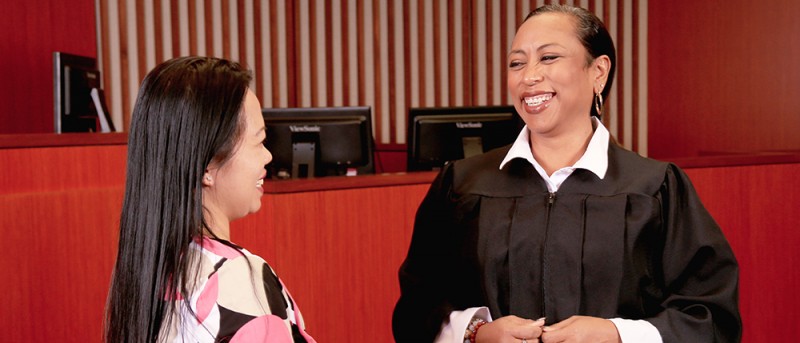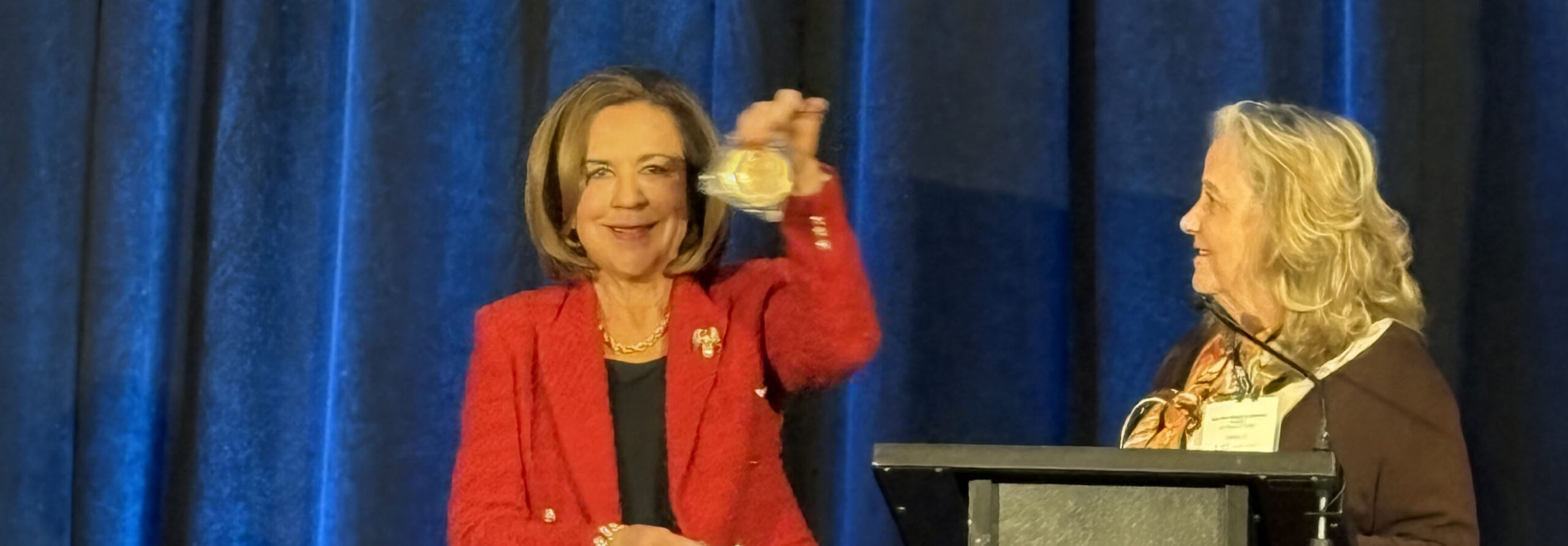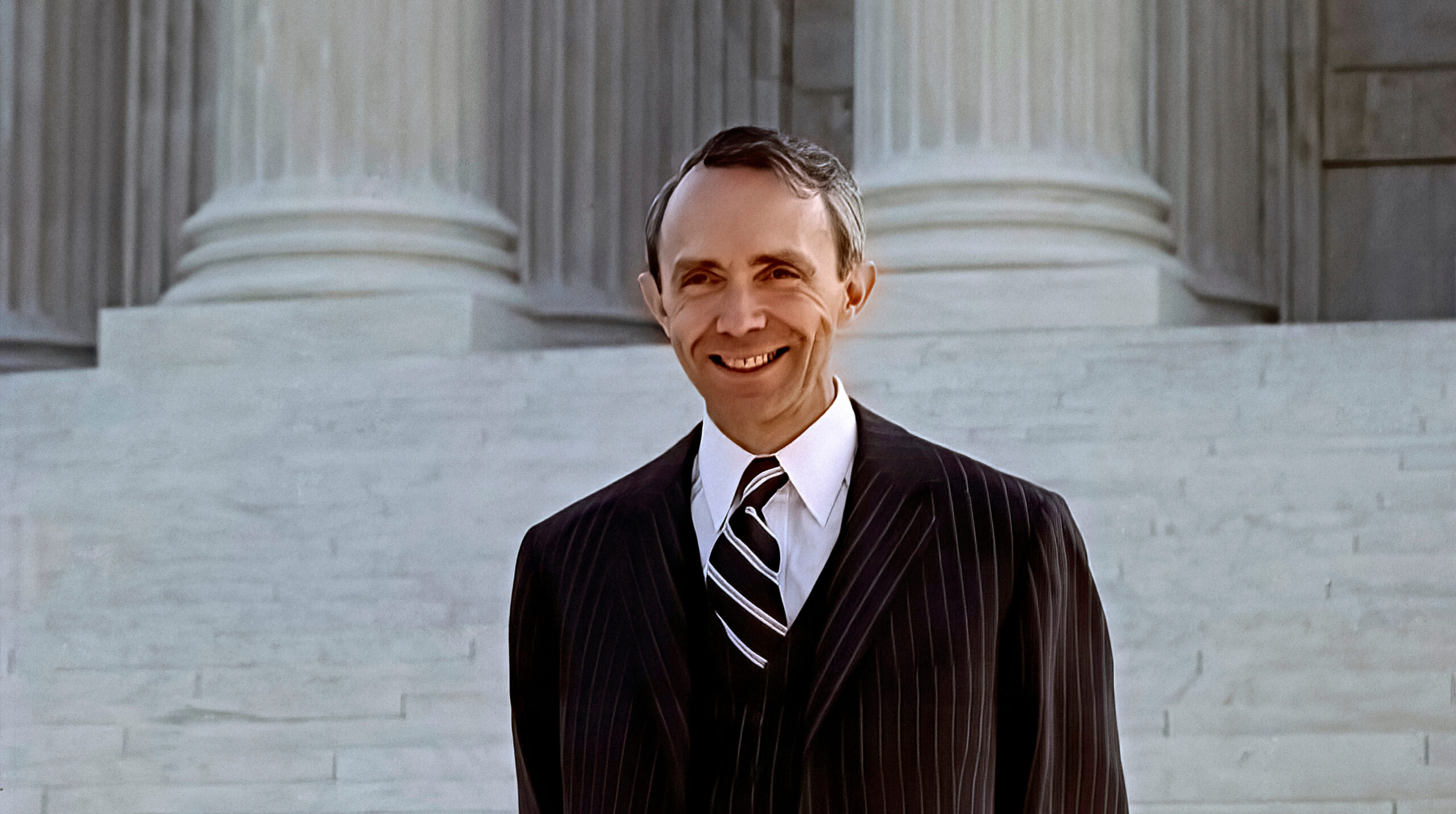

These days you’ll often hear judges raise concerns about crushing dockets, the isolation of the job, being the target of vicious attack ads during election campaigns, negative media accounts, and disrespect and interference from the political branches, among others.
On the U.S. News & World Report list of the “100 Best Jobs” for 2019, judging ranks … somewhere below 100; it didn’t make the list.
But the judicial profession is still seen as appealing by at least one segment of the labor market: Judges.
Our January Question of the Month asked NJC alumni, “Would you recommend judging as a profession today?” Nearly 89 percent of the 594 judges who responded said they would. Nearly 4 out of 10 respondents amplified their vote with a comment.
Among the positives mentioned: financial compensation, esteem, intellectual stimulation, the opportunity to improve one’s community, a work environment one can control, and being able to help litigants resolve their problems.
Several said that being a judge is the best job they’ve ever had.
“The best job in the world is to have the opportunity to touch so many people and inspire confidence in our judicial system,” wrote one judge anonymously, as was most often the case in the comments. The judge added, “I absolutely recommend judging as a profession for the patient lawyer who wants to make a difference.”
Another anonymous judge mentioned the satisfaction in helping defendants improve their lives by putting them on the right track. “This not only benefits the defendant but the defendant’s family and the community. This can be very rewarding….”
A third said it’s an honor “to represent an independent branch of our government and to defend the values of our shared democracy.”
“It is very rewarding work and a remarkably unique job,” wrote Louisiana District Court Judge Clayton Davis.
But Indiana Superior Court Judge Timothy W. Oakes was among those cautioning that the profession is not for everyone – “nor has it ever been,” he said. It takes “the right disposition, intellectual curiosity, work ethic and [a] servant mindset,” he said.
“It has to be a calling,” echoed another judge, “something you feel compelled to do. I would not recommend doing it just to have a good job. There are easier, less stressful ways to make a living.”
If you know of someone who would make a good judge, NJC is offering its inaugural Judicial Academy: A Course for Aspiring Judges. For more information, go to: www. https://bit.ly/2ATrHnw.
* Each month the College emails an informal, non-scientific one-question survey to its more than 12,000 judicial alumni in the United States and abroad. The results, summarized in the NJC’s Judicial Edge Today, are not intended to be characterized as conclusive research findings.

The National Judicial College has awarded Missouri Supreme Court Judge Mary Russell with the Sandra Day O�...

Emeritus Trustee Bill Neukom (left) with former Board of Trustee Chair Edward Blumberg (right) at the NJC 60...

The National Judicial College, the nation’s premier institution for judicial education, announced today t...

The National Judicial College (NJC) is mourning the loss of one of its most prestigious alumni, retired Uni...

As threats to judicial independence intensify across the country, the National Judicial College (NJC) today...